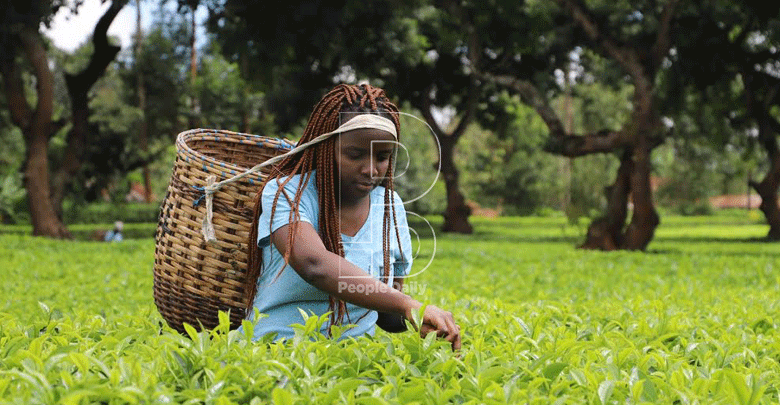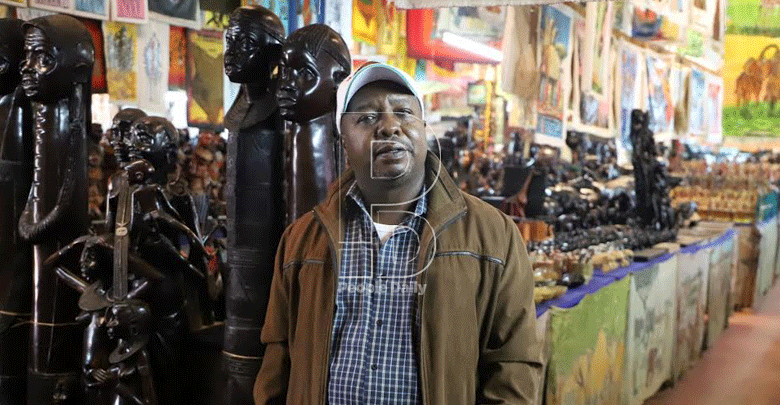Creating new experiences to suit the local traveller
By Harriet James, June 3, 2021Reeling under the devastating effects of the pandemic that has brought tourism businesses to their knees, players have been forced to gear towards the domestic market, and develop new attractions, such as tea and coffee farm visits in rural areas that provide new encounters, are not frequently visited and meet demand for less crowded places.
Domestic tourists have always been used as a backup plan in the absence of international tourists with the belief in the myth that the domestic market lacks spending power in luxury travel held by industry players.
This market has also been ignored in most statistics, with the arrival of international tourists being regarded as a measure of success of tourism.
However, this perception is changing with the pandemic exposing the dangers of overreliance on international tourism.
Clement Wakari, an African curio shop business operator attributes the overdependence on the difference in earnings between the locals and foreigners, terming it as the main reason business is now at a standstill.
“Most of us make these products on our own, so locals are not excited when we try to market the products to them, because they don’t put value on them.
It is hard to find a local spending Sh1,000, for example on an item, and this is for reasons, such as hard the economic times. They will first think about putting food on their table,” he explains.
Although he and his family take their time to tour the country to destinations, such as Samburu, Masai Mara National Reserve and the coast, most domestics travellers fail to visit their country because of the high cost of travelling and economic hardships.
Pundits say the rise of the middle class with an increase in spending power is another factor changing this perspective.
With over 50 per cent of the global population now categorised as ‘middle class’ or ‘rich’, it means that more people can afford to travel.
And this category of people will not just throw their money anywhere. Most have the hunger to explore unchartered paths and enjoy experience tourism, which is having a once in a life time experience or gaining emotional connection with cultures and nature.

Agro tourism or farm tourism caters to this rising demand for valuable experiences by offering insights into the unexplored ‘destinations’.
Immersive travel experiences
Recently, the Kenya Tourism Board (KTB) intensified its campaign to launching farm tours as one of the experiences to be sampled by both local and international travellers in line with the strategy to diversify its tourism products and experiences.
“As the world continues to open up for travel once again, there are emerging trends that operators within the sector will need to be aware of and incorporate into their business strategy and offering.
Some of these trends, include search for authentic and immersive local travel experiences,” says KTB Company Secretary Allan Njoroge during the launch of farm tours in Gatura Greens Tea Farm in Murang’a county.
He added that Kenyan products continue to play a great role in keeping destination memories alive globally, especially now with the minimal travel and lockdowns experienced globally due to the Covid-19 pandemic.
“People want to understand what makes Kenya’s products special and farm tours provide this information.
We also want to show domestic tourists that there are many travel opportunities around them to explore,” he says.
As travellers get tired or bored of cookie-cutter vacations in tourist hot spots, Njoroge says they begin looking for an authentic experience in their travel destination.
They can easily go for a brand that will allow them to mingle with the locals and experience the culture of the people.
Cathryn Karanja, founder of Gatura Greens noted this quest and decided to open the doors of their family farm to domestic travellers who desire to learn more on the purple tea in their farm.
“Kenyans love to learn. That is the number one review we get about our tours.
The second most popular review we get from our tours is how adventurous it is, because of the waterfall on the farm that guests get to swim in!” she observes.
The farm has been operational since 1984 and ventured into purple tea farming in 2009, making them the first farm ever to plant the tea variety in Kenya.
They then began processing their own tea in 2016. Seeing how the tea, a fairly new variant in the world was taking the industry by storm, she decided to curate an experience around it for guests to learn more about it at the farm and had the first tour in October of 2020 right in the middle of the pandemic.
“The country had been in and out of a lockdown and people were looking for every reason to leave their houses, safely. So it was actually a great time to start, since all our activities are outdoors and we’re not too far from Nairobi,” she adds.
Agro tourism caters for the wellness aspect of tourism, which the modern traveller is looking for.
Apart from the fresh air, green environment as well as a hiking experience, the farm produces purple tea, which has immense health benefits.
Their future plans include creating a tea museum at the farm house coupled with the accommodation options available at the farm house with camping and home stay options.
“The museum will display the rich history of tea in the country, down to our specific farm and give guests an interactive experience of tea at the home of purple tea,” says Cathryn.
For Albert Mathangani, one of the proprietors of Waihiga Farm, they began tours in their family farm officially in 2019 after having a large number of foreign and local tourists tour the place to learn about coffee and dairy farming.
“We’ve always been open about what we do here and how we do it. We encourage others to start similar ventures for their current and future investments.
Also, it’s a way of showing people that one can live off agribusiness as a career and not only a retirement investment. We never used to charge our guests until recently.
We have developed a website and started scheduling tours to promote our farm brand,” he notes.
They hope to add more activities in the farm, for example, a cupping station/lab where they would teach guests how to cup and brew coffee.
Well priced products
Tourism and hospitality expert and director of Fairview Coffee estate Michael Warui believes that Kenyans are ready for the tourism products available provided that they are quality products and services and that they are priced well.
“I think we price our tours fairly for the Kenyan market as they pay a third of what nonresidents would ordinarily pay and they get a chance to learn about one of the key sectors in their country.
I would encourage other Kenyans to do the same in other sectors, such as tea and dairy,” he notes
For the past six years, Fairview Coffee Estate has been offering the coffee farm tours to both international and domestic travellers.
The tours not only offer Kenyans the experiential travel that they desire, but also gives them a chance to learn about their key export products, sample and buy their own products.
They have also tapped into the wedding market where Kenyans book their venue for photo shoots. They have a target of 70,000 guests annually and desire to have a coffee theme park in future.
Michael also adds that there should be a development in the interpretations and the story lines developed around these products as well to attract the domestic travellers.
“It’s not just the product per say, but they want the stories too. I can give you the story about Fairview going back to 1909 and grow you in and that becomes an amazing experience that you can take back and share with your family,” he offers.
“We decided to open the doors to our home to cater for the change in the domestic travellers taste buds as they are looking for places where they can bond and also learn about coffee, which is one of Kenya’s largest exports,” says Wangeci Mungai, CEO of Karunguru Coffee Limited.
Speaking recently at the sustainable tourism Africa Summit 2021, Head of operations and design Saffir Africa, Velma Kiome, noted the need for a change of mindset when it comes to handling domestic travellers.
“Kenyans need to feel that they can consume the tourism brand in that country as easily as the international travellers.
In a lot of instances, we find that it’s easier for internationals to consume the country themselves and that needs to change. For diversification to happen, we need to think of how it works for ourselves first,” she said in conclusion.
